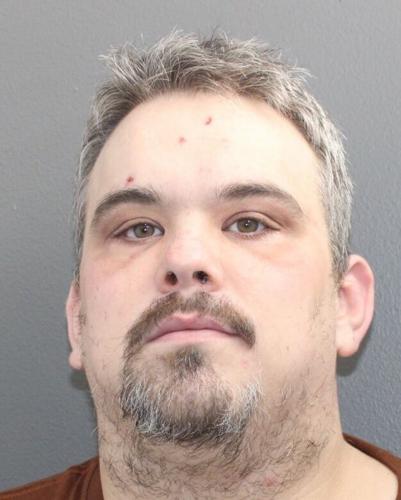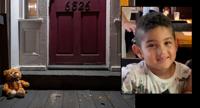For the second time in as many months, Schenectady County began a week with news of an allegedly neglected child left for dead.
This past week it was Charlotte Buskey, an effervescent 5-year-old found unresponsive early Sunday morning in her Schenectady bedroom, with her 33-year-old father, Robert Buskey, accused of killing her by failing to feed her or provide anything to drink for days.
Last month, it was baby Halo Branton, who died of hypothermia after her 24-year-old mother, Persia Nelson, allegedly left the 11-month-old in a utility pipe on the GE campus on a cold, rainy March night.
The parallels between the cases of allegedly deadly neglect are painfully clear.
Both parents are accused of being out of it. Persia Nelson “didn’t know where she was” when she was found in a heated room on the GE campus, according to Schenectady Police Chief Eric Clifford. And Robert Buskey’s sister told The Daily Gazette’s Ted Remsnyder she suspects her brother was in such a drug-addled state that he forgot his 5-year-old daughter was in her room. A younger child found in the home tested positive for cocaine.
But if your sense of déjà vu was especially heightened by these similar cases just weeks apart, it may be because Schenectady County was already attuned to grim news of parents or guardians harming the very people they are supposed to protect.
Another tragic reminder came Thursday, when Schenectady County officials announced the indictment of a mother and her boyfriend nine months after police found the body of Skylar Pettit, a 24-year-old with Down syndrome, wrapped in plastic and blankets inside her Rotterdam home. Pettit’s mother, Amber Geier, is a 54-year-old licensed practical nurse accused of discontinuing appropriate care for her daughter, including failing to fill a vital insulin prescription that effectively led to Pettit’s slow starvation, according to Schenectady County District Attorney Robert Carney.
When Carney spoke at a press conference Thursday about the indictment, he had these three cases, plus two others, on his mind, he told me Friday.
“From time to time, we've had horrible crimes perpetrated against children, but not in a cluster like this,” said Carney, who is a veritable institution in Schenectady County prosecution, with more than three decades of experience. "It absolutely is the highest concentration.”
The three cases in the news over the last several weeks follow a horrific 2021 stabbing in Duanesburg, in which Nelson Patino was sentenced in December to life in prison without parole for killing his wife and 5-year-old son, and injuring his 2-year-old son.
A year earlier, a 29-year-old foster parent, Dequan Greene, was sentenced to at least 25 years in prison after he stomped on and killed a 4-year-old in his care.
On the one hand, attempting to link these five cases is futile, bordering on dangerous. Searching for some common denominator risks offering rationale for unusually heinous acts that defy reason or explanation.
"There isn't a commonality between all five other than the fact that children or dependent people were killed,” Carney said. “They're all parents who just stopped caring for their child, walked away and didn’t care. And it's that level of indifference which is inexplicable."
Still, the seemingly unprecedented concentration of grave harm at the hands of guardians in Schenectady County is worth noting, even if the connective tissue seems somewhat nebulous. Because these cases involve parents or guardians killing – or fatally neglecting – their children, they go beyond the spate of sad news I wrote about following a melancholy March, affecting everyone deeply, especially those whose livelihoods demand they continue to live with awful details.
“I saw three of the first responders in the Persia Nelson case cry while they testified," Carney told me, adding: "My attorneys that are working on these cases, most of them have young kids at home, and that takes a toll on them, too. They go home and they hug their babies and can't understand the horror that they had to deal with."
That kind of pain demands a search for solutions, impossible as the endeavor may be.
If there is any common glue binding these cases, perhaps it is the pandemic, which put people on edge across the planet. During our years of social isolation, tensions rose and serious crime ticked up, including cases of domestic violence, which has been called the “shadow pandemic.”
At the same time, critical support systems took a major hit amid the viral transmission of COVID-19. Virtual visits replaced in-person check-ins, and the routine of face-to-face services simply hasn’t been fully reinstated.
The foster parent in Rotterdam exploited the pandemic, using it as an excuse to cancel appointments with Child Protective Services. Geier, too, allegedly, put off social services personnel who may have been more likely to visit the Rotterdam home in person prior to the pandemic.
What’s more, the pandemic overtaxed crucial front-line workers, with social service agencies across the country facing staffing crunches as a result.
But these five recent cases cannot be blamed cleanly – or even at all – on a failed Schenectady County social services system. After all, Persia Nelson hadn’t been in Schenectady long before she allegedly left her baby in a pipe. And Charlotte Buskey wasn’t on the county’s radar as being in danger, according to Carney.
Instead, the common failure in all five of these cases may be a collective one. It may be a result of our pandemic-induced tendency toward isolation.
In each case, could a friend, family member or neighbor have intervened? For instance, had anyone visited the Buskey home, they’d have seen that Robert had become a hoarder, Carney said.
Buskey and his children were “living in an indescribably horrible environment. Just piles of filthy clothes and dirty dishes,” the Schenectady County district attorney told me. "Anybody who walked in there and called CPS, those kids would have been pulled from their living environment."
Following these five tragedies, the charge, then, may be to all of us. Let’s re-engage. And let’s recommit to checking in on one another.
"We need to be more of a caring community about our neighbors and what's going on in their homes,” Carney said. “It takes a village to raise a child, and things happen when people are isolating children.”
This may seem like a simple step and one that does little to counteract the scourge of intractable issues such as addiction and severe depression that have our communities in their clutches. A renewed focus on caring may feel as inconsequential or as unproductive as connecting seemingly disjointed dots – a practice for which the news media faces regular criticism, accused of pointing to patterns that may be mere illusions.
Then again, acknowledgment of an issue is often a key first step.
And perhaps seeing a throughline between a cluster of morbid news is the start of seeing our way through.
Images: Recent Schenectady-area child homicides

Charlotte Buskey, who police say was starved to death by her father Robert Buskey, who is now facing a manslaughter charge.
More: Aunt of Schenectady child who starved to death calls for justice

Halo R. Branton, whom police say was left for dead by her mother Persia Nelson, who is now facing a murder charge.
More: Mother pleads not guilty in death of baby Halo in Schenectady

A look at the exterior of the home at 1726 Greenpoint Ave. in Rotterdam where 24-year-old Skylar Pettit was found dead in July, on Wednesday, July 26, 2023. Pettit's mother is now accused of manslaughter in Pettit's death.

A teddy bear sits on the doorstep of 6826 Duanesburg Road in honor of 5-year-old Jacob Patino, inset, and his mother Alexandria Bustamante Gomez in Duanesburg in December 2021. Jacob's father was convicted in both deaths.
More: Max sentence for man in Duanesburg slayings of wife, child; Life, no parole

FILE – 2734 Broadway in Rotterdam, the scene of 4-year-old Charlie Garay’s murder as seen in June 2021. Charlie's foster father was convicted in his murder.
More: Judge gives max in Rotterdam foster care child murder case – ‘You’re a sociopath’


















